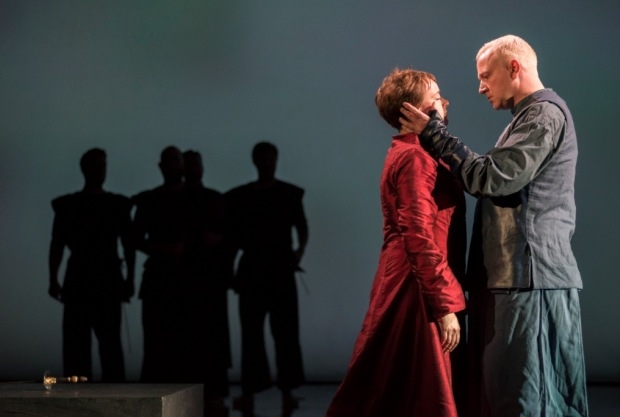Tristan und Isolde (Longborough Festival)
A five-star musical performance trapped in a one-star production of Wagner’s opera

© Matthew Williams-Ellis
There’s a small nexus of outstanding British singers, no more than half a dozen, who have reached their vocal prime yet you’ll blink and miss them on the major stages. Rachel Nicholls is one such. Granted, the soprano sang Eva in ENO‘s triumphant Mastersingers earlier this year, but you’re just as likely to find her invisibly covering bigger names or else plying her trade at Longborough, the Cotswolds summer festival where she made her name singing Brünnhilde.
Nicholls returned this year as one half of Tristan und Isolde, and if the jury is still out on her after this it ought to be hung. Our opera houses should be busily planning their future schedules around her availability. I wonder if they are.
While Nicholls was a vocal heroine as Isolde, her stage lover, Peter Wedd, matched her all the way with the secure timbre of his Heldentenor voice, more tempered gold than steel. I’d rarely expect to hear a more vocally relaxed Tristan, nor one whose anguished character emerged so powerfully from within.
Wagner’s hyper-erotic score boasts more orgasms to the hour than any other opera, musically speaking at least, and the star couple sent wave after wave of aural ecstasy shuddering through the 400-strong audience that had crammed itself into Longborough's tiny theatre.
'Rare romantic sweep'
It was an immense partnership. Both artists are British yet they sang this Everest of the operatic repertoire to an international standard for the third time in eight days and never tired for a moment. Each voice complemented the other ideally, and they were fabulously supported by a remarkable 73-piece orchestra under the inspired conducting of Anthony Negus, another unsung hero who ought to be running an opera house rather than popping up on the periphery. He achieved miracles of phrasing and balance in a reading of rare romantic sweep.
Nor did the quality end there. Stuart Pendred was an intense and believable Kurnewal, Frode Olsen a sonorous King Marke whose extended scena was unusually gripping, and Catherine Carby a powerful Brangäne, vocally luminous in her offstage warning to the lovers. Minor roles were taken from Longborough’s excellent chorus of young professionals and none of them disappointed for a moment.
This was my first visit to a ridiculously ambitious festival that’s already mounted a full Ring cycle and has Tannhäuser lined up for next year. They certainly know a thing or two about hiring musicians. It was a Tristan to ravish the ears.
But my, the staging was inept. Ben Ormerod‘s evocative lighting was a noble exception to one of the most amateurish directing jobs I’ve seen in ages. Flat entrances and exits, limp sword fights, excessively heavy costumes ill-matched to the spartan decor, and a disastrous decision to set a pair of dancers onstage with Tristan and Isolde whenever they got up close and personal. To what end, for heaven’s sake? If the players are good enough, as Wedd and Nicholls emphatically are, they can tell me a thousand stories just by the way they gaze at each other. I don’t need flappy-armed signage to spell it out for me.













